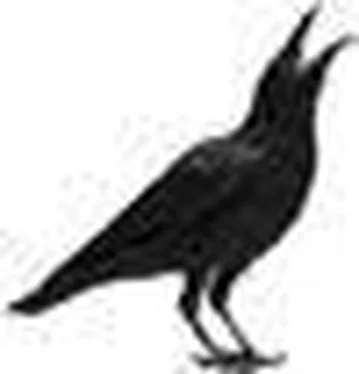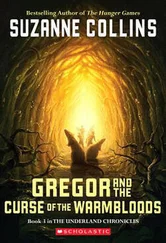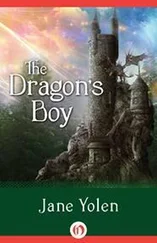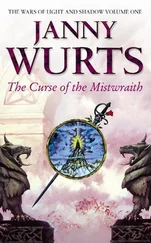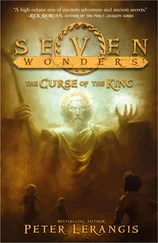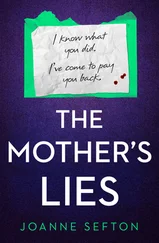“You’ll have some scarring—something to impress the ladies when you’re older. Nothing more serious than that.”
I nodded, still unable to absorb all of it. It still felt dreamlike to me.
“We got out,” I said hesitantly, seeking reassurance.
He nodded. “Yes, Will Henry. We got out.”
The subject was dropped for the moment; he laid out my clothes and stood at the bedside impatiently while I struggled to dress. Every joint ached, every muscle quivered with fatigue, and my chest burned horribly with the slightest movement. When I sat up, the room spun around, and I gathered the sheets into my fists to ballast myself against the waves of nausea smashing against the brow of my enfeebled constitution. The shirt I managed to put on without aid, but when I lowered my head to slip on the pants, I toppled over—the doctor stepping forward to catch me before I smacked face-first onto the floor.
“Here, Will Henry,” he said gruffly. “Come now. Lean against me.”
He pulled up my pants, cinched the belt tight.
“There. Now, I trust you’ve too much pride to suffer the indignity of me carrying you downstairs. Here, hold on to my arm.”
Thus we proceeded to the lobby restaurant, where the doctor ordered a pot of tea and instructed our waiter (who also happened to be the bartender and the cook) to “unload the larder.” In good time I was stuffing my mouth with biscuits and venison gravy, pancakes glistening in maple syrup, fresh sausages and bacon, eggs, fried potatoes, hominy, and breaded trout filets. Warthrop cautioned me to slow down, but his warning went unheeded in the hurly-burly of my frontier bacchanal. It was as if I had never tasted food before, and the more I ate, the more exquisite became my appetite.
“You’re going to make yourself sick,” the monstrumologist said.
“Yes, sir,” I muttered around a mouthful of biscuit.
He rolled his eyes, sipped his tea, and looked out the window to Main Street, drumming his fingers on the tabletop.
“Did you get a good look at it, sir?” I asked.
“A good look at what?”
“The . . . thing that was chasing us.”
He turned back to me. His expression was unreadable.
“There was no ‘thing’ chasing us, Will Henry.”
“But the eyes . . . you saw them.”
“Did I?”
“ I did.”
“With the eyes of one suffering from dehydration, sleep deprivation, hunger, physical trauma, exhaustion, exposure, and extreme fear—not unlike my eyes at the time.”
“What about the tent? Something tore it right out of—”
“Wind shear.”
He smiled condescendingly at my baffled expression. “A freak meteorological phenomenon. Rare, but not unheard of.”
“But I heard it, sir. Coming after us . . . It was huge .”
“You heard nothing of the sort. As I’ve told you before, fear murders our reason. I should never have panicked, but I was, like you, in a state of heightened emotional distress. In my right mind I would have realized the best course of action would have been to stay where we were, as far from the trees as possible.”
“Far from the trees?”
“The preferable place to be in an earthquake.”
“An earthquake,” I echoed disbelievingly. He was nodding. “It was an earthquake?”
“Well, what else could it have been?” he asked crossly. “Really, Will Henry, the alternative you’re suggesting is absurd, and you know it.”
I set down my fork. Suddenly I wasn’t hungry anymore. Indeed, I felt full to my ears, bloated and slightly nauseated. I looked down at my plate. The dead eye of the trout stared blankly back at me. Shards of white flesh clung to the delicate translucent bone. I would strip her bare. I would see her as she is. I thought of Pierre Larose. And then of Sergeant Hawk, his arms flung wide as if to embrace the limitless sky, his eyeless sockets regarding something we who retained our eyes could not see.
“If you are finished gorging yourself,” the doctor said, consulting his watch, “we are late for our appointment.”
“Appointment, sir?”
“They won’t allow us to leave until they speak to you, and I am anxious to quit this charming little backcountry outpost as soon as possible.”
“They” turned out to be two detectives with the North-West Mounted Police. The doctor had reported the deaths of Larose and Sergeant Hawk immediately, and Hawk’s body had been quickly recovered where we had abandoned it, less than ten miles from the northern shore of the Lake of the Woods. A party had been dispatched to locate Larose’s makeshift grave with the aid of a crude map sketched by Warthrop. He wasn’t sure of the precise location, he told his interrogators, but he knew it was off the main trail about a day’s hike from the Sucker camp at Sandy Lake.
The doctor was accustomed to dealing with all varieties of law enforcement; it was an inherent part of his work, since monstrumology was, in a way, the study of the criminal side of nature. He answered their questions forthrightly, his responses becoming vague only to the questions about the purpose of John Chanler’s journey.
“Research,” he replied cagily.
“Research of what, Dr. Warthrop?” the detectives asked.
“Of certain indigenous belief systems.”
“Could you be more specific?”
“Well, he certainly didn’t consult me about it,” Warthrop said, a bit testily. “If you’d like to know more, I suggest you ask Dr. Chanler.”
“We have. He claims to remember nothing.”
“I’ve no doubt he’s telling the truth. He has been through a terrible ordeal.”
“Making out a little better than his guide, though.”
“If you are suggesting he had something to do with Larose’s murder, you are sadly mistaken, Detective Sergeant. I am not telling you how to execute your duties, but the person you should be asking these questions is Jack Fiddler.”
“Oh, we’ll be talking to Mr. Jack Fiddler. We’ve had reports about the strange goings-on up there at Sandy Lake.”
Then it was my turn. The detectives politely asked the doctor to leave. He staunchly refused. They asked again with noticeably less politeness, and he, seeing that further recalcitrance would serve only to delay our departure, reluctantly agreed.
For the next hour they walked me through the story, from first day to terrifying last, and I answered their questions as thoroughly as I could, omitting only those things the doctor had told me were borne of “dehydration, sleep deprivation, hunger, physical trauma, exhaustion, exposure, and extreme fear”—everything, that is, that smacked of Outiko.
“Do you know what Chanler went up there for?” they asked me.
“I think it was research.”
“Research, yes, yes; we’ve heard that.” Then, abruptly, they shifted gears. “What kind of doctor is he?”
“Dr. Chanler?”
“Dr. Warthrop.”
“He is a . . . natural philosopher.”
“Philosopher?”
“A scientist.”
“What does he study?”
“N-natural things,” I stuttered.
“And Dr. Chanler, he’s the same kind of philosopher?”
“Yes.”
“And what are you? Are you a philosopher too?”
“I’m an assistant.”
“You’re an assistant philosopher?”
“I provide services to the doctor.”
“What kind of services?”
“Services of the . . . indispensable kind. Is the doctor in trouble?” I asked, hoping to change the subject.
“A sergeant of the NWMP is dead, boy. Somebody is going to be in trouble.”
“But I told you— he left us . He disappeared one night and he was dead when we found him.”
“Bush fever—climbed a tree and froze to death. A local boy who grew up in those woods, who hunted in them and fished in them, who’s hiked them from here to the arctic circle. Just runs off, hauls himself up a tree in the middle of the first big storm of the season . . . You see how it doesn’t add up, Will.”
Читать дальше
